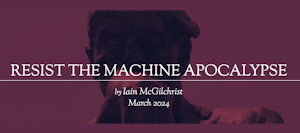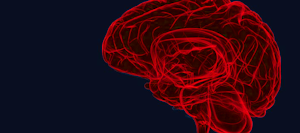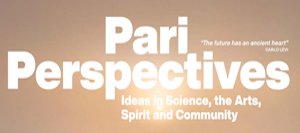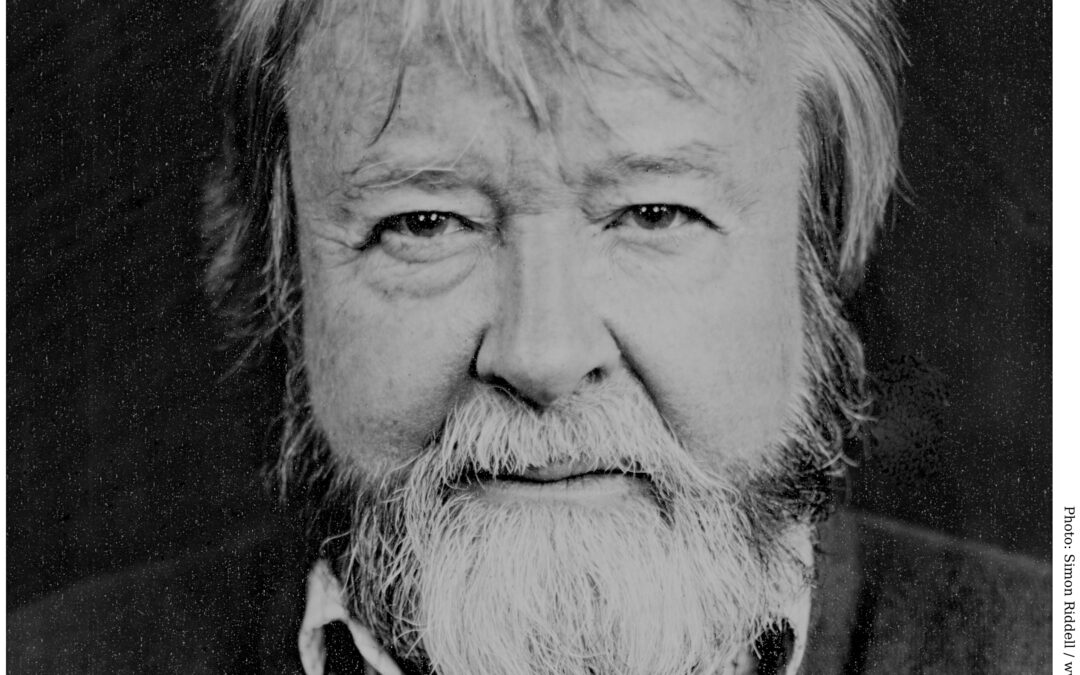
No two ways about it: We are making ourselves wretched. We are more affluent than ever, but riches—and power, the only point in having riches—do not make people happy. Ask a psychiatrist. Or take a look at the face of Vladimir Putin, who has, alas, the power of life and death over millions of people and is the owner of the most expensive toilet-paper dispenser in the world. No, affluent as we are, we are also more anxious, depressed, lonely, isolated, and lacking in purpose than ever. Why is this? I suggest it is because we no longer have the foggiest idea what human life is about. Indeed, there is a sense in which we no longer live in a world at all, but exist in a simulacrum of our own making.

In response to Scott Kauffman’s article yesterday arguing the right-left brain hemisphere split isn’t true, the main proponent of the view, Iain McGilchrist responds

According to Laozi:
He who knows does not tell and he who tells does not know.
The power of unknowing and not doing is celebrated in Chinese philosophy. Also in the Western tradition. For example, Meister Eckhart in one of his sermons speaks of the attainment by the soul of darkness and unknowing and he imagines a bystander asking him:
‘But what is this darkness and unknowing and what is its name?’ To this he replies, ‘I can only call it a loving and open receptiveness which however in no way lacks being. It is a receptive potential by means of which all is accomplished.’
This suggests the fertility of union between a creative principle and a receptive, womb-like space in which something is to grow: a process. It’s of this encounter, this process, that I wish to speak today.

In the lecture series given in Cambridge in 1951 that formed the basis of his book Science & Humanism, the physicist Erwin Schrödinger observed:
It seems plain and self-evident, yet it needs to be said: the isolated knowledge obtained by a group of specialists in a narrow field has in itself no value whatsoever, but only in its synthesis with all the rest of knowledge and only inasmuch as it really contributes in this synthesis toward answering the demand, τίνες δὲ ἡμεῖς; “Who are we?”
Schrödinger is recalling the words of the third-century Greek philosopher Plotinus; but his point is of a contemporary relevance that it is impossible to overstate. It is reinforced by the words of the neurosurgeon Wilder Penfield, whose work on mapping the brain is renowned: “The problem of neurology is to understand man himself.”
From the Marginalia Review of Books
Thank you for writing with the Marginalia Review of Books. We are delighted to publish your essay, “Science and Metaphysics: A Family Quarrel”, which is available to read and share both as a web-page and PDF.




